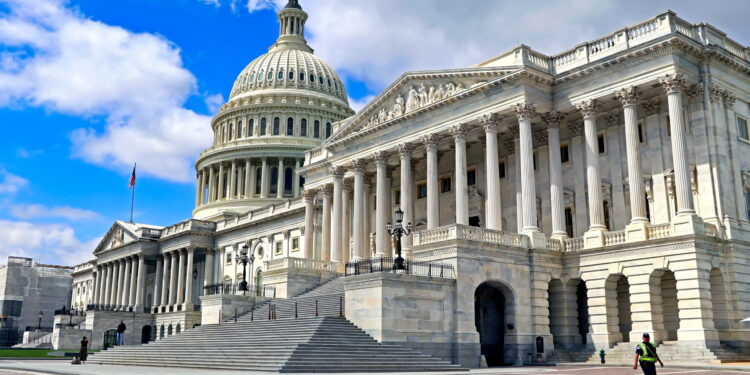On Tuesday, April 30th, in a surprising political turn, House Democrats announced their decision to support Republican Speaker Mike Johnson against efforts by some members of his own party to remove him. This decision underscores a significant cross-party alliance in the United States House of Representatives amidst a backdrop of internal Republican disputes and strategic maneuvering.
The challenge to Johnson’s speakership is spearheaded by Representative Marjorie Taylor Greene and a faction of hardline conservatives, who are dissatisfied with his cooperation with Democrats on various legislative matters, including a significant aid package for Ukraine. Greene’s motion to vacate the chair has become a focal point of contention, threatening to destabilize Johnson’s leadership position.
Democrats have expressed their readiness to thwart Greene’s efforts, citing the need for stability and bipartisanship in Congress. They argue that the ongoing support for Ukraine and other critical national security issues necessitates a functional and cooperative Congress, which they believe Johnson supports.
Johnson, an evangelical conservative from Louisiana, has found himself at the epicenter of a complex political storm within his party. Despite his conservative credentials, his pragmatic approach to governance, including his reliance on Democratic votes for key legislation, has alienated some members of his party.
This intra-party conflict comes at a critical moment, with upcoming legislative deadlines and the approaching mid-term elections, which could redefine the balance of power in Congress. Democrats’ unusual move to support a Republican speaker highlights the intricate dynamics of U.S. politics, where strategic interests can lead to unexpected alliances.
The support from Democrats potentially solidifies Johnson’s position for the near term, mitigating the risk of a leadership vacuum in the House. However, this alliance may also carry political risks for Johnson, as it could exacerbate the fractures within the Republican Party and impact his support base.
As the political drama unfolds, the focus remains on how this bipartisan cooperation will influence legislative outcomes and party dynamics ahead of the elections. The situation underscores the ongoing challenges and complexities of governing in a highly polarized political environment.










